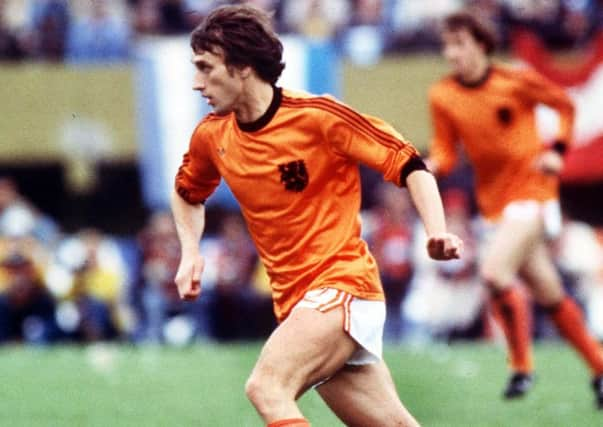Remembering Rob Rensenbrink, scorer in the famous ‘Archie Gemmill’ game that still haunts the Scottish psyche


The French club contend that a long-range effort by Dominique Bathenay and a Jacques Santini header that crashed back off the woodwork during the 1976 European Cup final v Bayern Munich would have ricocheted into the net rather than rebounding out again had the frame been a rounder style, as we see today.
Saint Etienne lost 1-0 and have not done much of note since. They bought the old posts at Hampden several years ago to erect in their museum.
Advertisement
Hide AdAdvertisement
Hide AdIt’s not known whether the right-hand post that denied Rensenbrink a World Cup-winning goal in the final moments of the 1978 final was later planted in the Dutch winger’s garden. Probably not. But we know said item – again, square in style – robbed him of immortality when his left-footed poke hit the post and came back into play with the score standing at 1-1 between Argentina and the Netherlands. The moment of impact was 15 seconds into injury time.
There were other suggested serious repercussions; it is proposed that the military junta running the country at the time might have been toppled earlier had Argentina not eventually lifted the trophy by winning 3-1 after extra time, with all the nationalistic fervour that entailed. The Falklands Islands war, meanwhile, may also have been avoided.
Rensenbrink’s recent death, occurring as it did shortly before Kobe Bryant’s tragic accident, was always going to struggle to gain exposure outwith his homeland and Belgium, where he played the vast majority of his club football. In life he struggled to escape the shadow of Johan Cruyff in that skilful Dutch team of the 1970s, despite his own mercurial talents.
It was doubly ironic that, when the great Cruyff passed away four years ago, Rensenbrink’s name also trended owing to a mistake by the Guardian, who used a large photo of… Rensenbrink rounding a goalkeeper on the front page of its sports supplement beneath the heading: Johan Cruyff 1947-2016.
To be fair, long haired and rangy, they did look alike, although there was one giveaway: the player had No 19 on his shorts rather than Cruyff’s iconic 14. The front page is still pinned to a cork board in my study as a lesson to check, check and check again.
Rensenbrink remains the only Dutch player to score a hat-trick in a World Cup match – against Iran in 1978.
He also scored the opener from the penalty spot – the 1000th World Cup goal – in the famous “Archie Gemmill” game that still haunts the Scottish psyche.
The Dutch goalkeeper that day, Jan Jongbloed, later suffered a heart attack in his mid-forties during training. Mercifully, he is still with us. Graeme Souness, who made his first start in the finals as Scotland bowed out despite the 3-2 win, has since undergone heart surgery and now looks as well as ever.
Advertisement
Hide AdAdvertisement
Hide AdAs well as being the first to score that evening in Mendoza, Rensenbrink is the first of the 24 players who featured – the Dutch used two subs – to pass away. He was only 72 and had latterly battled a muscle-wasting disease. It seems right to remember the World Cup final matchwinner who never was.